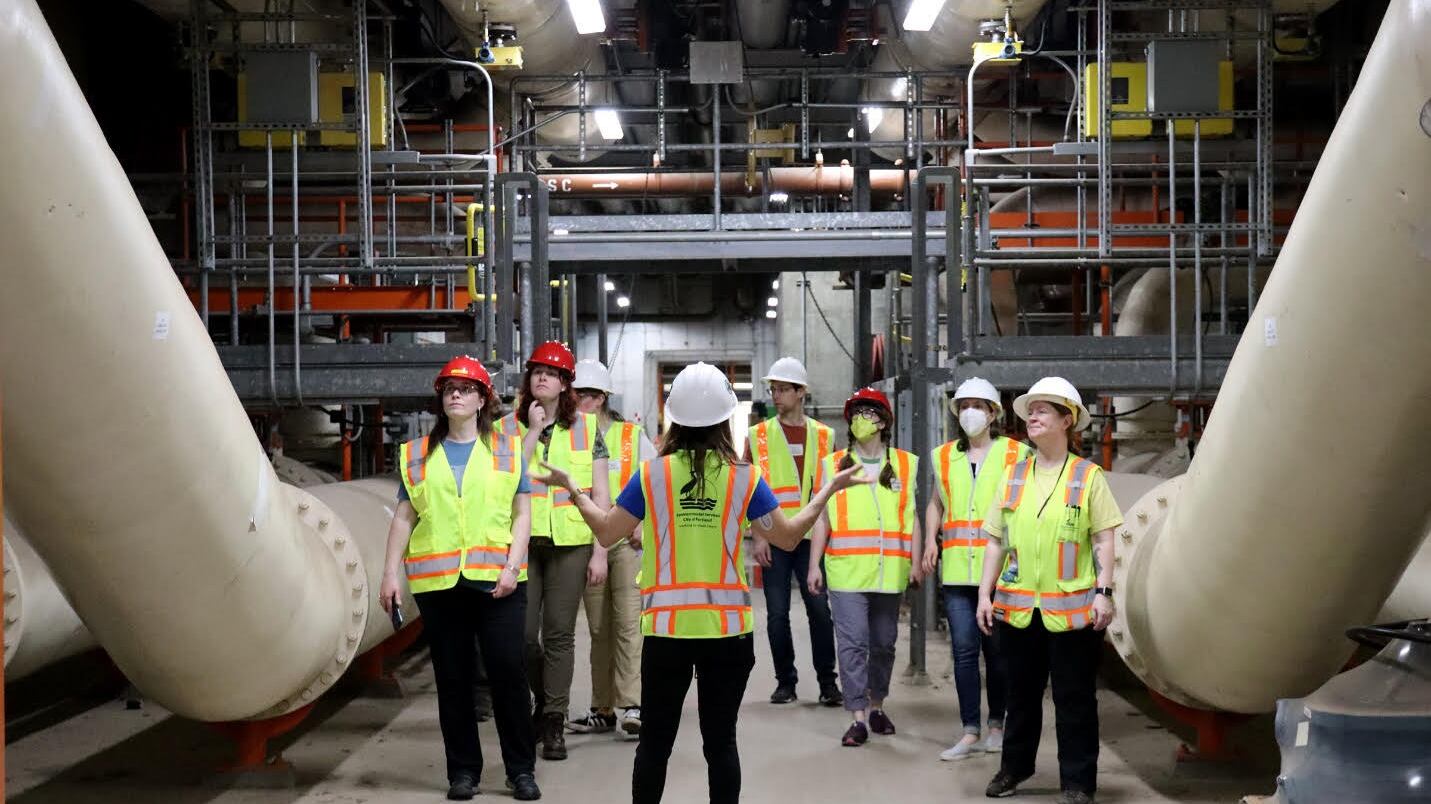There’s a sewage treatment plant on North Columbia Boulevard. Sometimes it stinks and sometimes it doesn’t. Is there a schedule of when it’s going to smell bad, or is it something that just happens? —Shirley Temple
The Portland Bureau of Environmental Services’ Columbia Boulevard Wastewater Treatment Plant processes 70 million gallons of wastewater on an average day. Of this amount, less than half a percent is human waste, and only around a tenth of a percent is actual turds. That said, I think we can agree that human waste punches well above its weight in the pungency department, so it’s a testament to modern sanitary engineering that on most days you can drive by the facility without noticing any untoward odor at all.
But not always. Interestingly, the smell isn’t the sulfurous, open-sewer smell you might imagine, but rather a sharp, acrid funk that I have described as “biker ass.” (Folks with agricultural backgrounds have since told me a more apt comparison would be a feedlot.) It doesn’t manifest very often, but when it does, you know it.
So, are the smells released on a schedule—a sort of “if it’s Tuesday, this must be stale urine” paradigm? Or are they the unplanned result of some disaster, with panicked technicians shouting, “Containment breach in Sector 12!” amid a flurry of flashing red lights and blaring, nuclear submarine-style klaxons?
Unsurprisingly, it’s neither. First, there’s no set schedule for the release of odors. Plant operators usually do know about them in advance, however, since the most common reason is scheduled maintenance, when portions of the plant are shut down for inspection, repairs or cleaning. You can even sign up for advance notification of these events if you like so you can arrange to be out of the neighborhood. (Or, I suppose, in the neighborhood, if that’s what you’re into.)
It’s true that releases are sometimes unplanned—usually due to weather, equipment malfunctions or changes in wastewater composition—but nothing that would turn the plant into a scene from The China Syndrome. Such events are usually detected quickly and brought under control without incident. (That said, BES encourages you to get in touch if you smell anything unusual.)
In any case, the public doesn’t seem all that bothered by the odors: In 2023, the plant offered a rare tour to a few lucky citizens. More than 3,500 eager aspirants signed up for just 10 slots, inviting comparisons to Willy Wonka’s factory tour—albeit with a slightly less appealing chocolate river.
Questions? Send them to dr.know@wweek.com.
